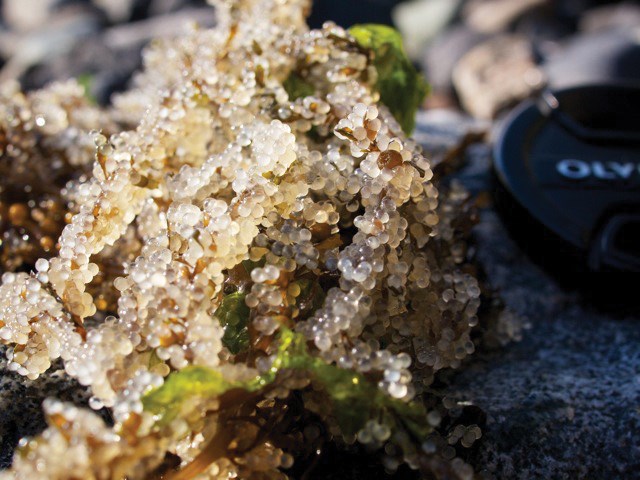The Sunshine Coast Friends of Forage Fish volunteer group would like to remind the public – especially gardeners – that herring spawning season will soon be upon us.
As a practice, mulching is great, but when one chooses seaweed as mulch, a series of thoughtful decisions should be made beforehand.
First of all, what is the time of year? February and March are herring spawning months on the Coast, and herring will often choose seaweeds as an anchor for their eggs. Even when the egg-laden seaweed gets broken off and washed up on the beach, those eggs can quite happily survive until the next high tide. By taking seaweeds during the spawning season, there is the potential to destroy thousands of herring eggs. None should be collected at this time.
How much will I take, and how often? There are a lot of us in the world now, including the Sunshine Coast, and our cumulative impact is significant. That seaweed line is home to many small sea creatures and provides shelter, shade and moisture between the tidal periods. Do you really need seaweed for a mulch?
Is there something with less impact I can use to mulch? Many of us throw out great mulch materials like grass clippings, compost or sawdust.
If you must collect seaweed as mulch for your garden, take only small amounts and over a large area to minimize the impact on this special area of our world, and take none during the months of February and March.
Sunshine Coast Friends of Forage Fish is a local volunteer group that has been diligently sampling Sunshine Coast beaches for the presence of forage fish eggs. There have been findings of sand lance and surf smelt eggs at several local beaches.
For more information or to volunteer, call Dianne Sanford, volunteer coordinator, Sunshine Coast Friends of Forage Fish, 604-885-6283, or email diannesanford@gmail.com. For more information, also see friendsofforagefish.com



